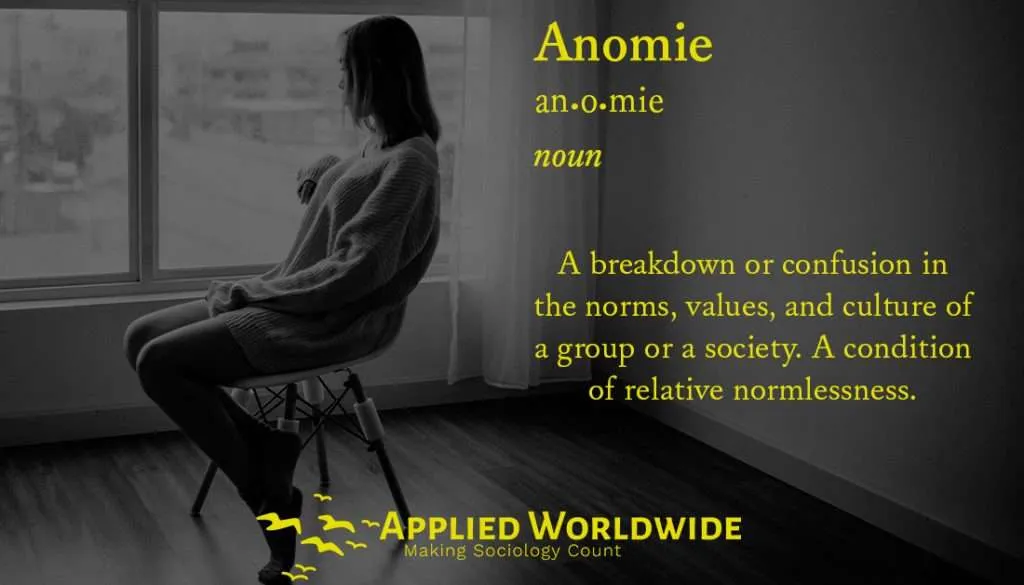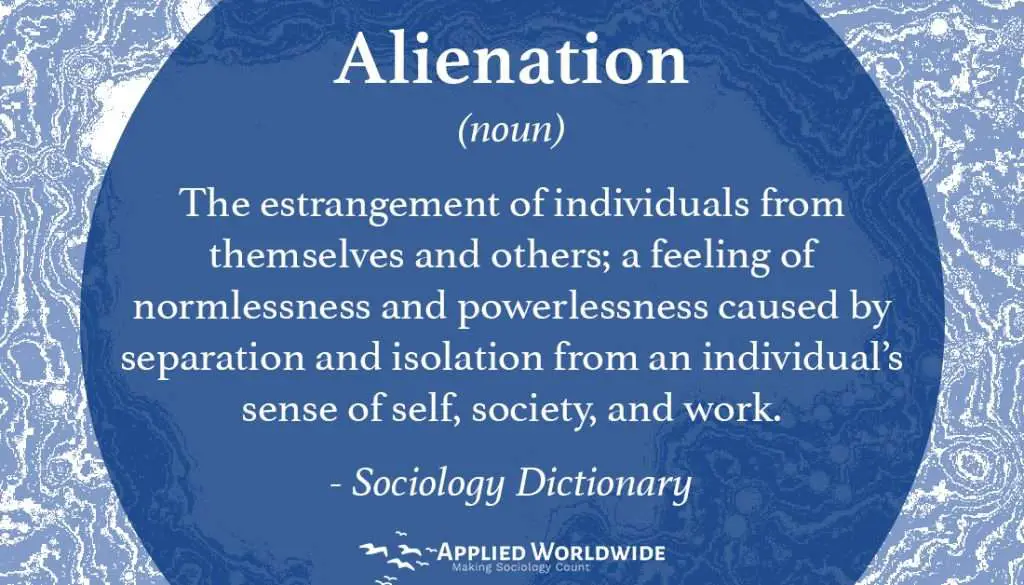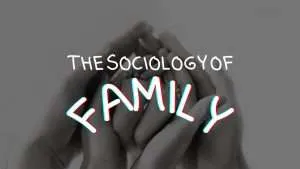Social transformations such as industrialization, capitalism, the instrumental rationality associated with capitalism, as well as the lack of control over the ethics associated with it, lead to a reduction in the influence of independent rationality in man. This condition causes “anomie” in the most optimistic form and the “alienation” in the most pessimistic form. Alienation and anomie are both common terms in sociology. Here I will define anomie and alienation, and apply both anomie and alienation in Iran and Iranian society.
What are Anomie and Alienation?
Anomie means abnormality. Anomaly is a situation in which social and moral norms are ambiguous and disrupted. Durkheim believes that whenever the social orders are disrupted, the supervisory influence of society on individual tendencies loses its effectiveness, and individuals in society are left to their own devices, anomie occurs. Anomie is a condition of relative disorder in the whole society or in some of its constitutive groups.

Alienation means losing or disconnecting from something. The word is used for a human being who is alienated from human nature. In alienation, man does not know his true and natural personality and identity and distances himself from his real and natural existence. This condition is the metamorphosis of man that arises from the influence of another personality or identity in him.
Rationality and Reason
In Hegel’s philosophy, knowledge means the unity of one who knows. This unity is achieved by man joining himself, not by coming out of himself. Thought that comes from an independent intellect is consciousness. In his view, the current and induced thoughts in society that oblige and compel us to follow it are not the discernment of reason but the validity and authority of another reference. He believes that alienation takes shape when man feels that the survival of his individual personality exists outside of his essence, that is, in society and the state.
The formation of a human’s individual personality outside of his nature leads to a kind of personality disorder that begins with anomie and culminates with alienation. If we consider the issue of rationality in this disorder, we find that the prevalence of instrumental rationality (rationality that its reference is not the discernment of reason but the prevailing conditions) and its related ethics disrupts independent thought and reason.
In such a case, individuals pursue their personal goals by relying on inductive thought, that is, instrumental rationality. These conditions deprive the independence and discernment from reason and keep the intellect away from its inherent and real function. Accordingly, the individual personality of individuals outside their nature is formed by society and the conditions that govern it.
The prevailing rationality in society on the one hand, and the inner dialectics of independent reason, on the other cause a kind of disorder, disease, and duality in the rationality of the individual. This situation, with ambiguity and confusion in human diagnosis, decision-making and behavior, leads to disruption of social and moral norms in society and the occurrence of anomie.
Connecting Anomie and Alienation
If “anomie” is not prevented and controlled, “alienation” will appear in humans and eventually in society, making the situation more critical. In the conditions of “anomie” there are still internal conflicts and dialectics of man, and this makes the stream of rationality survive, but in the conditions of “alienation” the supervisory influence of society under the rule of instrumental rationality becomes instrumental.
This means that the observer and stimulus source of the flow of rationality in society, with the alignment of the diseased currents of society, loses the ability to provoke and accompany conflicts and internal dialectics of human beings. This source prevents independent human thinking by imposing the diseased and dominant thinking of society on human beings and causes the destruction of the inner dialectics of independent reason.
In fact, the internal conflicts and dialectics that forced man to independent react to social and moral anomalies disappear. Based on that, human behavior is not based on the discernment of the independent intellect, but is the result of surrendering to a will other than one’s own will and coming out of itself.
These conditions lead to the interruption of the flow of rationality in human beings and the emergence of alienation in society. In such a society, social and moral anomalies become the norm and lack of rationality of rationality is formed.
When Anomalies become the Norm
Comparing “anomie” and “alienation,” it must be acknowledged that in anomie, the power of the moral common system decreases, while in alienation its function and role changes entirely. Moral common system becomes instrumental under the influence of surrounded rationality thus, by inducing instrumental tendencies, takes the power of independence from reason. In anomie, norms are ambiguous, but in alienation, social and moral anomalies become the norm. In anomie, internal dialectics or the flow of rationality are disturbed and diseased, while in alienation the flow of rationality is interrupted. In anomie, society is sick but alive, while in alienation, society is dead.
In sick but alive society, there are moral and social anomalies and people eat each other like wolves but the voices of opposition, struggle and resistance are heard.
In a dead society, not only do moral and social anomalies become normal, but being a wolf becomes a norm and a value. In this society, no voice or reaction is heard except silence and indifference.
Alienation in Iran
One of the societies in which the signs of alienation have appeared is Iran. Iran is a society in transition from traditional to modern society. On the one hand, this society is facing global developments such as industrialization, capitalism and its associated instrumental rationality, and on the other hand, it is involved in political, social and economic ups and downs. This has caused the macro and micro level of society to face a wide range of conflicts and as a result feel threatened.
In Iran, macro-levels (structures) focusing on specific interests have not only distanced themselves from public interests and tasks, but also instill and impose the interests of a specific group on society. These conditions have created the context for alienation in the people. Individuals in their individual actions, by distancing themselves from independent wisdom and thinking, succumb to the imposed conditions and, as a result, face alienation.
The thinking and conditions of society are not only imposed but also become instrumental thinking by serving a particular group, thus instilling instrumental thinking. This has caused the micro level to cross the collective wisdom with a focus on its own interests and to align with the sick flow of society. In fact, the lack of control and neglect of this situation has led to a crisis at the social level.
Alienation in Iran has led to the emergence of a silent majority in social reactions. People have a neutral and indifferent reaction to changes and transformations in society. People do not react to changes in society to protect their personal interests.
References on Anomie and Alienation in Iran
- Durkheim, Emile (1979). Suicide.
- Delaney, Tim (2003). Classical Social Theory: Investigation And Application.
- Marx, Karl (1932). Economic And Philosophic Manuscripts Of 1844.
- Aron, Raymond (1998). Main Current In Sociological Thought.
- Daryabandari, Najaf (2016). Selflessness Pain: Review Of The Concept Of Alienation In The Philosophy of The West.








